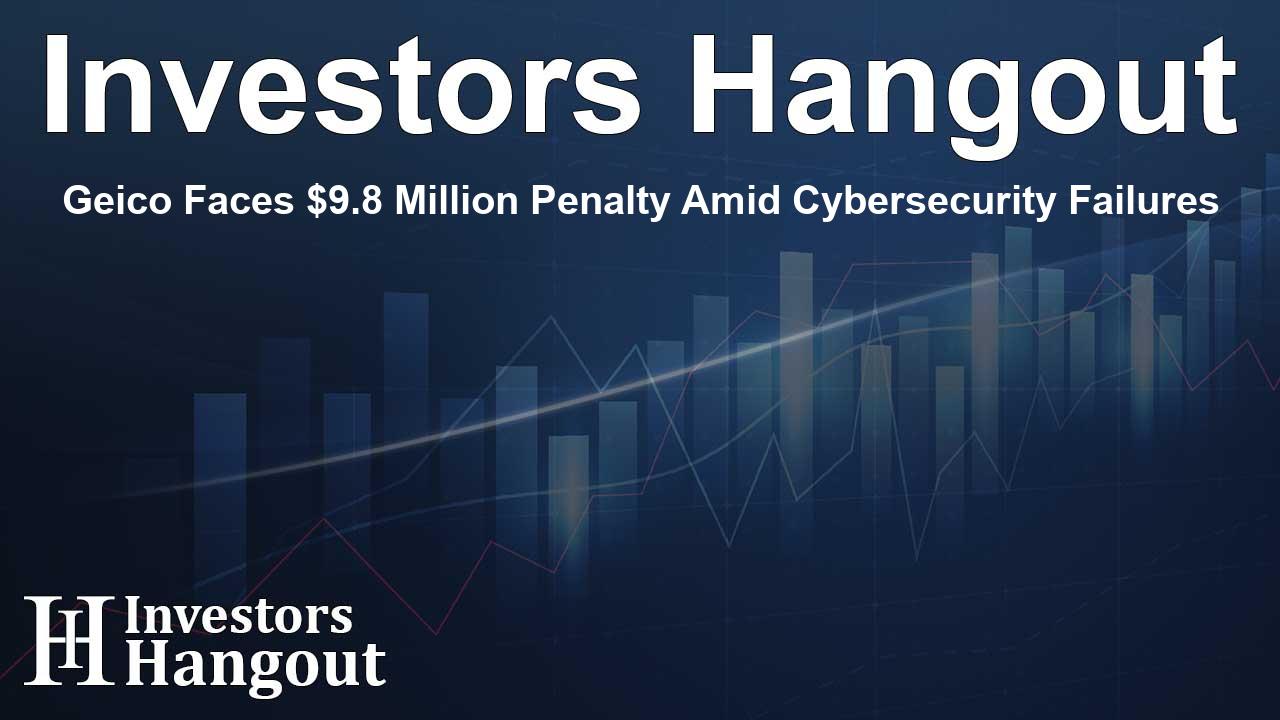Geico Faces $9.8 Million Penalty Amid Cybersecurity Failures

Geico's Significant Fine for Data Breach
In a notable action, the New York Attorney General's office imposed a hefty fine of $9.75 million on Geico, a well-known car insurance company. This penalty comes as a result of a serious data breach that exposed personal information belonging to 116,000 drivers in the state, raising considerable concerns about data protection in the insurance industry.
Details of the Breach
The investigation revealed that Geico and Travelers Indemnity Company (NYSE: TRV) failed to implement adequate security measures to safeguard customer information. The breaches occurred during the pandemic, a time when many organizations were under heightened risk from cyberattacks. These attacks specifically targeted personal data, including driver’s license numbers, which could be manipulated for fraudulent activities, particularly in relation to unemployment claims.
Understanding the Impacts of Cyberattacks
The repercussions of such data breaches can be far-reaching. Not only do they compromise sensitive personal information, but they also undermine customer trust and can lead to significant financial repercussions for the company. Geico and Travelers both acknowledged the gravity of their cybersecurity vulnerabilities in light of these incidents.
Agreements for Better Cybersecurity Practices
As part of the settlement, both Geico and Travelers will enhance their cybersecurity measures to prevent future breaches. This includes a commitment to reassess their data protection policies and to implement more robust security protocols. The fines and agreements signal a growing awareness and urgency among companies to take cybersecurity seriously.
Consumer Awareness and Protection
This incident is a vital reminder for consumers to stay vigilant regarding their personal information safety. Individuals are encouraged to regularly monitor their financial statements and be aware of any unusual activities that may arise. Engaging in proactive measures can help mitigate the impact of data breaches.
Lessons for the Insurance Industry
The actions taken against Geico and Travelers serve as a warning to the entire insurance industry. The increasing frequency of cyberattacks necessitates a reevaluation of how companies protect sensitive data. As more businesses transition to digital platforms, the demand for robust cybersecurity strategies becomes paramount.
Frequently Asked Questions
What led to Geico's fine?
Geico was fined for failing to adequately protect the personal information of 116,000 drivers during a data breach.
How much was the fine imposed on Geico?
The New York Attorney General's office fined Geico $9.75 million for the security lapse.
What did Travelers pay in relation to the data breach?
Travelers Indemnity Company will pay $1.55 million for a separate breach affecting around 4,000 people.
What measures are being taken to improve cybersecurity?
Both Geico and Travelers have agreed to enhance their cybersecurity practices to prevent future data breaches.
How can consumers protect themselves from data breaches?
Consumers should monitor their financial statements regularly and report any suspicious activities to safeguard their personal information.
About Investors Hangout
Investors Hangout is a leading online stock forum for financial discussion and learning, offering a wide range of free tools and resources. It draws in traders of all levels, who exchange market knowledge, investigate trading tactics, and keep an eye on industry developments in real time. Featuring financial articles, stock message boards, quotes, charts, company profiles, and live news updates. Through cooperative learning and a wealth of informational resources, it helps users from novices creating their first portfolios to experts honing their techniques. Join Investors Hangout today: https://investorshangout.com/
Disclaimer: The content of this article is solely for general informational purposes only; it does not represent legal, financial, or investment advice. Investors Hangout does not offer financial advice; the author is not a licensed financial advisor. Consult a qualified advisor before making any financial or investment decisions based on this article. The author's interpretation of publicly available data shapes the opinions presented here; as a result, they should not be taken as advice to purchase, sell, or hold any securities mentioned or any other investments. The author does not guarantee the accuracy, completeness, or timeliness of any material, providing it "as is." Information and market conditions may change; past performance is not indicative of future outcomes. If any of the material offered here is inaccurate, please contact us for corrections.